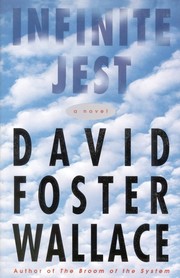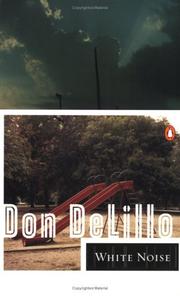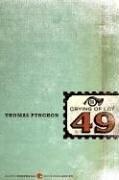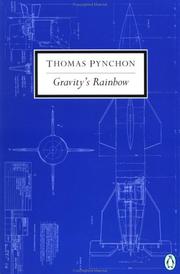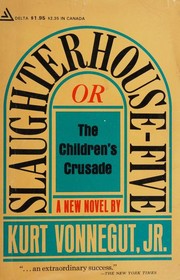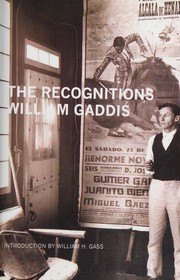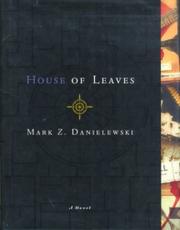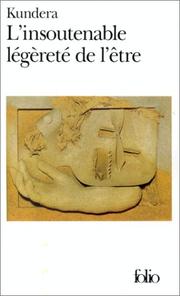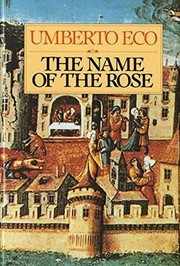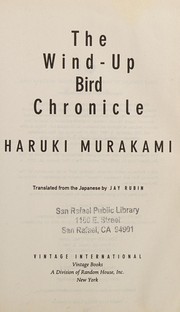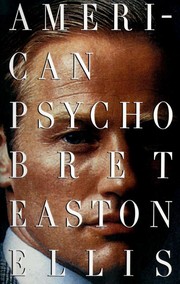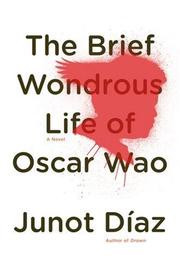If you’re searching for a thought-provoking book on postmodernism, look no further. Postmodernism is a complex and fascinating topic that has made a significant impact on literature, philosophy, and culture. Whether you’re a student, scholar, or simply intrigued by the movement, these 20 best postmodernism books are essential additions to your reading list. From classic works to modern explorations, these books delve into the intricacies of postmodern thought, challenging traditional narratives and pushing the boundaries of storytelling. Get ready to expand your mind and explore the ever-evolving landscape of postmodernism.
Contents
- 1 20 Best Books About Postmodernism
- 2 Infinite Jest
- 3 White Noise
- 4 The Crying of Lot 49
- 5 Gravity’s Rainbow
- 6 Slaughterhouse-Five
- 7 If on a Winter’s Night a Traveler
- 8 The Recognitions
- 9 House of Leaves
- 10 The Savage Detectives
- 11 The New York Trilogy
- 12 The Unbearable Lightness of Being
- 13 The Name of the Rose
- 14 Beloved
- 15 Blood Meridian
- 16 The Wind-Up Bird Chronicle
- 17 The Satanic Verses
- 18 American Psycho
- 19 The Brief Wondrous Life of Oscar Wao
- 20 The Things They Carried
- 21 Postmodernism, or, The Cultural Logic of Late Capitalism
- 22 Conclusion
- 23
- 24 Discover the Best Beauty Books in the 2024 Updated Edition
- 25 Best Books About Black Women. 2024 Edition
- 26 Discover Best Irish Folklore Books: 20 Key Titles, 2024 Updated
20 Best Books About Postmodernism
Infinite Jest
by David Foster Wallace
Infinite Jest by David Foster Wallace is a thought-provoking, complex, and engaging novel that delves into the intricacies of addiction, entertainment, and the pursuit of happiness in a dystopian future. The book explores the interconnected lives of a wide array of characters, and challenges traditional narrative structures with its nonlinear storytelling. Through its intricate plot and dense prose, Infinite Jest offers a deep exploration of human desires, anxieties, and the impact of the entertainment industry on society. This postmodernism book is a literary masterpiece that has captivated readers with its unique narrative style and profound insights into the human condition.
White Noise
by Don DeLillo
White Noise by Don DeLillo is a thought-provoking book on postmodernism that explores the anxieties and absurdities of modern life. The novel follows the story of Jack, a professor of Hitler studies, and his family as they navigate through the noise and chaos of contemporary society. DeLillo’s writing is both witty and profound, delving into themes of consumerism, media saturation, and the fear of death. The book offers a satirical commentary on the postmodern condition, challenging readers to question the nature of reality and the impact of technology on human existence. With its sharp wit and astute observations, White Noise is a must-read for anyone interested in a book about postmodernism that challenges the status quo.
The Crying of Lot 49
by Thomas Pynchon
The Crying of Lot 49 by Thomas Pynchon is a mind-bending book on postmodernism that follows Oedipa Maas as she unravels a mysterious and intricate conspiracy. Set in California in the 1960s, the novel takes readers on a wild ride through a world of paranoia, double meanings, and hidden messages. Pynchon’s prose is dense and labyrinthine, filled with pop culture references, puns, and intricate wordplay. The novel is a book about postmodernism that challenges traditional narrative structures and blurs the line between reality and fiction. As Oedipa delves deeper into the web of secrets, she becomes increasingly unsure of what is real and what is constructed, leaving readers to question their own perceptions of the world. The Crying of Lot 49 is a must-read for anyone interested in a mind-bending, thought-provoking postmodernism book.
Gravity’s Rainbow
by Thomas Pynchon
Gravity’s Rainbow by Thomas Pynchon is a sprawling and enigmatic novel that has become a classic of postmodern literature. Set during World War II, the book follows a diverse cast of characters as they navigate the chaos and uncertainty of the war-torn world. Pynchon’s writing is rich with intricate language, complex symbolism, and a non-linear narrative structure that challenges traditional storytelling conventions. The novel explores themes of paranoia, technology, and the nature of reality, making it a thought-provoking and challenging read for those interested in postmodernism. With its labyrinthine plot and dense prose, Gravity’s Rainbow has become a touchstone for readers looking for a mind-bending and intellectually stimulating book about postmodernism.
Slaughterhouse-Five
by Kurt Vonnegut
Slaughterhouse-Five by Kurt Vonnegut is a classic postmodern novel that defies traditional storytelling. The book follows the experiences of Billy Pilgrim, a World War II soldier who becomes “unstuck in time” and experiences moments of his life in a non-linear fashion. Through this unique narrative structure, Vonnegut explores the horrors of war, the concept of free will, and the nature of human existence. The novel’s blend of dark humor, science fiction elements, and anti-war themes makes it a thought-provoking and unconventional read. Slaughterhouse-Five is a prime example of a postmodernism book that challenges literary conventions and offers a fresh perspective on the human condition.
If on a Winter’s Night a Traveler
by Italo Calvino
If on a Winter’s Night a Traveler is a postmodernism book by Italo Calvino that takes readers on a unique literary journey. The novel is a playful and inventive exploration of the act of reading itself, as it follows the intertwining stories of two readers who are trying to read the same book. As the readers encounter a series of incomplete and interrupted narratives, the book challenges traditional storytelling conventions and blurs the lines between fiction and reality. Calvino’s use of metafiction and self-reflexivity makes If on a Winter’s Night a Traveler a thought-provoking and engaging read for those interested in postmodernism. The book about postmodernism invites readers to question the nature of storytelling and the relationship between author, text, and reader, creating a truly immersive and mind-bending reading experience.
The Recognitions
by William Gaddis
The Recognitions by William Gaddis is a monumental book about postmodernism that delves into the themes of art, identity, and authenticity. The novel follows the life of Wyatt Gwyon, a talented but disillusioned artist, as he grapples with the pressures of modern society and the struggle to maintain his artistic integrity. Gaddis’ intricate prose and complex narrative structure make The Recognitions a challenging but rewarding read for those interested in postmodernism. The novel is a thought-provoking exploration of the nature of reality, originality, and the human condition, making it a must-read for anyone seeking a deeper understanding of the complexities of the modern world.
House of Leaves
by Mark Z. Danielewski
House of Leaves by Mark Z. Danielewski is a mind-bending, labyrinthine book about postmodernism that defies traditional storytelling. The novel is a multi-layered narrative that explores the enigmatic nature of reality and perception. It revolves around a young family who discovers a mysterious, ever-expanding hallway in their home, leading to a disorienting exploration of space, time, and the human psyche. The book is renowned for its unconventional formatting, with text arranged in unconventional ways that mirror the disorienting experience of the characters. With its complex narrative structure and intertextual references, House of Leaves is a prime example of a postmodernism book that challenges literary conventions and invites readers to question the nature of storytelling and reality.
The Savage Detectives
by Roberto Bolaño
The Savage Detectives by Roberto Bolaño is a captivating and complex book on postmodernism that follows the journey of a group of young poets in Mexico City. The novel is a postmodernism book that blurs the lines between fiction and reality, as it is narrated through a series of testimonies, diary entries, and interviews. The story spans over two decades and takes the reader on a literary adventure across Mexico, Europe, and Africa. Through its fragmented narrative and unconventional storytelling, The Savage Detectives challenges traditional literary conventions and offers a thought-provoking exploration of art, literature, and the search for meaning. This postmodernism book is a must-read for those interested in experimental fiction and the complexities of human experience.
The New York Trilogy
by Paul Auster
The New York Trilogy by Paul Auster is a captivating book on postmodernism that weaves together three interconnected detective stories set in the bustling city of New York. Auster’s masterful storytelling and intricate plotlines explore themes of identity, language, and the blurred boundaries between reality and fiction. The trilogy delves into the complexities of human existence and the enigmatic nature of the modern world, making it a thought-provoking and compelling book about postmodernism. With its labyrinthine narratives and existential musings, The New York Trilogy is a must-read for anyone intrigued by the enigmatic and philosophical aspects of postmodernism.
The Unbearable Lightness of Being
by Milan Kundera
The Unbearable Lightness of Being, a book on postmodernism, is a philosophical novel by Milan Kundera. Set in 1968 Prague, it follows the interconnected lives of four characters as they navigate love, politics, and the concept of eternal return. The novel delves into themes of existentialism, identity, and the complexities of human relationships, making it a thought-provoking book about postmodernism. Kundera’s introspective and lyrical prose draws readers into a world where the characters grapple with the weight of their decisions and the fleeting nature of existence. Through its exploration of individual freedom and the search for meaning, The Unbearable Lightness of Being is a captivating postmodernism book that challenges readers to question their own perceptions of reality and truth.
The Name of the Rose
by Umberto Eco
The Name of the Rose by Umberto Eco is a captivating historical mystery set in an Italian monastery in the 14th century. The story follows the Franciscan friar, William of Baskerville, and his novice, Adso of Melk, as they investigate a series of mysterious deaths within the monastery. As they delve deeper into the secrets hidden within the monastery’s walls, they encounter theological debates, political intrigue, and forbidden knowledge. This literary masterpiece is not only a gripping detective tale but also a thought-provoking book on postmodernism, with its exploration of the nature of truth, language, and the perception of reality. Eco’s intricate narrative and rich historical detail make this a must-read for anyone interested in a book about postmodernism or simply a gripping historical mystery.
Beloved
by Toni Morrison
Beloved by Toni Morrison is a haunting and powerful novel that delves into the complex and painful legacy of slavery in America. Set in post-Civil War Ohio, the story follows Sethe, a former slave who is haunted by the memory of her dead daughter, Beloved. As the past and present collide, the novel weaves together themes of trauma, memory, and the enduring impact of slavery on individuals and communities. With its nonlinear narrative and richly layered storytelling, Beloved is a profound exploration of the postmodern condition, offering a searing critique of historical and social constructs. Morrison’s masterful prose and evocative imagery make this a must-read for anyone interested in the complexities of the postmodern experience.
Blood Meridian
by Cormac McCarthy
Blood Meridian, a novel by Cormac McCarthy, is a brutal and haunting exploration of the American frontier in the mid-19th century. The story follows a teenage runaway known only as “the Kid” as he joins a group of scalp hunters led by the enigmatic and malevolent Judge Holden. The novel is a dark and violent portrayal of the lawlessness and savagery of the West, with McCarthy’s vivid and poetic prose capturing the harsh beauty and relentless cruelty of the landscape.
With its unflinching depiction of violence and its exploration of the nature of good and evil, Blood Meridian has been hailed as a masterpiece of American literature. This book on postmodernism challenges traditional notions of the Western genre and confronts the reader with the harsh realities of the human condition.
The Wind-Up Bird Chronicle
by Haruki Murakami
The Wind-Up Bird Chronicle by Haruki Murakami is a mesmerizing novel that delves into the complexities of the human experience. Set in Tokyo, the story follows the protagonist, Toru Okada, as he embarks on a surreal journey of self-discovery and introspection. The book delves into themes of existentialism, identity, and the blurred lines between reality and fantasy, making it a captivating read for those interested in postmodern literature. Murakami’s narrative style and non-linear storytelling create a sense of disorientation and mystery, immersing the reader in a world that challenges conventional notions of time and space. With its enigmatic characters and thought-provoking plot, The Wind-Up Bird Chronicle is a must-read for anyone seeking a thought-provoking book about postmodernism.
The Satanic Verses
by Salman Rushdie
The Satanic Verses, a book on postmodernism, is a controversial and thought-provoking novel by Salman Rushdie. The story follows two Indian expatriates living in England, whose lives become intertwined with the supernatural and the political. The novel explores themes of identity, religion, and the clash between tradition and modernity. Through a mix of magical realism, historical fiction, and satire, Rushdie delves into the complexities of multiculturalism and the power dynamics of the postcolonial world. The book about postmodernism challenges conventional narratives and blurs the lines between reality and myth, making it a compelling and intellectually stimulating read for those interested in postmodernism or contemporary literature.
American Psycho
by Bret Easton Ellis
American Psycho by Bret Easton Ellis is a controversial and thought-provoking novel that delves deep into the psyche of its protagonist, Patrick Bateman, a wealthy and successful investment banker living in Manhattan during the 1980s. The book on postmodernism explores themes of consumerism, narcissism, and the emptiness of modern urban life. Through the lens of Bateman’s disturbing and violent actions, the novel critiques the shallow and materialistic values of American society. With its graphic and unsettling depictions, the book about postmodernism challenges readers to confront the darker aspects of human nature and the superficiality of contemporary culture. American Psycho is a compelling postmodernism book that continues to spark debate and analysis, pushing the boundaries of traditional literary norms.
The Brief Wondrous Life of Oscar Wao
by Junot Díaz
The Brief Wondrous Life of Oscar Wao is a postmodernism book that follows the life of an overweight Dominican boy named Oscar, who is obsessed with science fiction and fantasy. Set in both the Dominican Republic and New Jersey, the novel weaves together the history of the Dominican Republic, the struggles of the immigrant experience, and the themes of love and loneliness. Junot Díaz’s writing style is bold, witty, and full of footnotes, creating a narrative that is both entertaining and thought-provoking. The novel explores the complexities of identity, family, and the impact of dictatorship on a nation. With its blend of pop culture references, historical events, and unique storytelling, The Brief Wondrous Life of Oscar Wao is a captivating and powerful book about postmodernism that will leave readers contemplating its themes long after they’ve finished reading.
The Things They Carried
by Tim O’Brien
The Things They Carried by Tim O’Brien is a powerful and poignant book on postmodernism that blurs the lines between fiction and reality. Through a collection of interconnected short stories, O’Brien explores the experiences of a group of soldiers during the Vietnam War, delving into the physical and emotional burdens they carry with them. The book about postmodernism challenges traditional storytelling by incorporating metafictional elements and questioning the nature of truth and memory. O’Brien’s prose is haunting and evocative, capturing the complexities of war and its impact on the human psyche. The Things They Carried is a postmodernism book that delves deep into the subjective nature of truth, making it a thought-provoking and unforgettable read.
Postmodernism, or, The Cultural Logic of Late Capitalism
by Fredric Jameson
Postmodernism, or, The Cultural Logic of Late Capitalism by Fredric Jameson is a seminal book on postmodernism that offers an insightful analysis of the cultural and intellectual landscape in the context of late capitalism. Jameson delves into the complexities of postmodernism, exploring its impact on art, literature, architecture, and popular culture. He argues that postmodernism is characterized by a fragmented, pastiche-like quality, and is deeply intertwined with the economic and social forces of late capitalism. Jameson’s book about postmodernism is a thought-provoking and challenging read, as he explores the ways in which postmodernism shapes our understanding of the world around us. Whether you’re a student of cultural studies, a scholar of literature, or simply curious about the complexities of contemporary culture, this postmodernism book is a must-read.
Conclusion
There you have it, the 20 best books about Postmodernism that will challenge your perspective and expand your understanding of this complex and influential movement. Whether you’re a seasoned scholar or a curious newcomer, these books offer a rich exploration of postmodern thought, art, and culture. Dive in and prepare to be enlightened, engaged, and perhaps even a little perplexed by the fascinating world of postmodernism.
Which Postmodernism book is best?
The best book on Postmodernism can vary with personal preference, but three widely recommended titles are:
- Infinite Jest by David Foster Wallace,
- White Noise by Don DeLillo,
- The Crying of Lot 49 by Thomas Pynchon.
Each offers valuable insights and could be a great starting point.
What are the best books to learn about Postmodernism?
For those looking to learn about Postmodernism, there is a wealth of literature that can provide a comprehensive understanding of the subject. Some of the most highly recommended books include:
- Infinite Jest by David Foster Wallace,
- White Noise by Don DeLillo,
- The Crying of Lot 49 by Thomas Pynchon,
- Gravity’s Rainbow by Thomas Pynchon,
- Slaughterhouse-Five by Kurt Vonnegut,
- If on a Winter’s Night a Traveler by Italo Calvino,
- The Recognitions by William Gaddis,
- House of Leaves by Mark Z. Danielewski,
- The Savage Detectives by Roberto Bolaño,
- The New York Trilogy by Paul Auster
These books offer a range of perspectives on Postmodernism, covering various aspects and approaches to the subject.
What are the best books on Postmodernism?
The best books on Postmodernism include:
- Infinite Jest by David Foster Wallace,
- White Noise by Don DeLillo,
- The Unbearable Lightness of Being by Milan Kundera,
- The Name of the Rose by Umberto Eco,
- House of Leaves by Mark Z. Danielewski,
- If on a Winter’s Night a Traveler by Italo Calvino.
Each offers unique insights into the subject. While these books on the topic of Postmodernism are highly regarded, it’s important to note that any list of ‘best’ books is subjective and reflects a range of opinions.
What are the best Postmodernism books of all time?
Choosing the best Postmodernism books of all time can vary depending on who you ask, but seven titles that are often celebrated include
- Infinite Jest by David Foster Wallace,
- White Noise by Don DeLillo,
- Slaughterhouse-Five by Kurt Vonnegut,
- House of Leaves by Mark Z. Danielewski,
- The New York Trilogy by Paul Auster,
- The Name of the Rose by Umberto Eco,
- and The Unbearable Lightness of Being by Milan Kundera.
Each of these books has made a significant impact in the field of Postmodernism and continues to be influential today.

